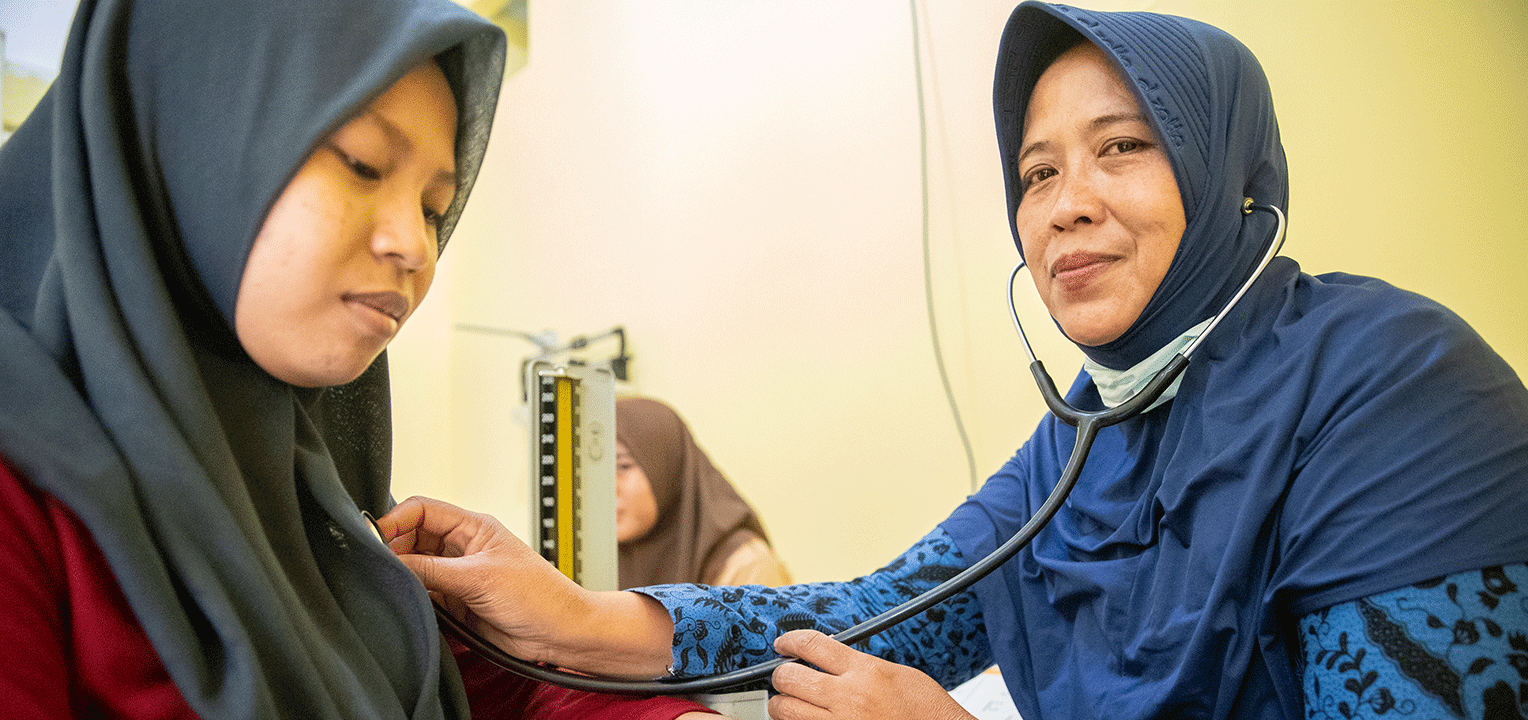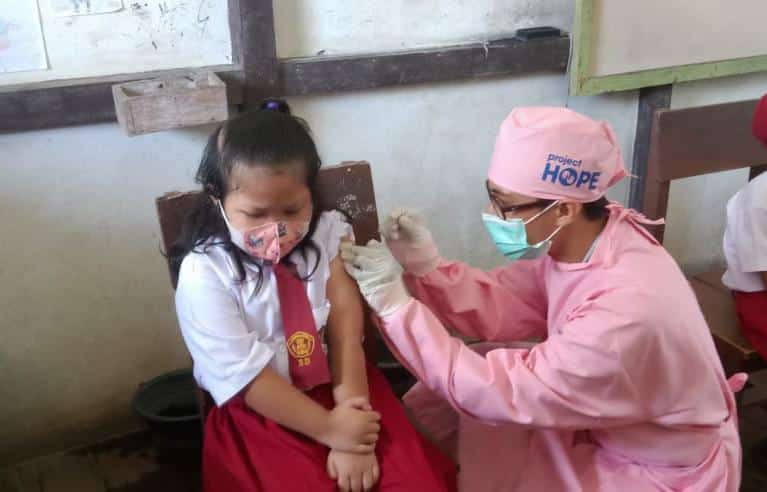
Tuberculosis
Project HOPE helps countries fight the burdens of infectious diseases, focusing on TB, HIV/AIDS, and COVID-19.
Tuberculosis (TB) is the world’s second-deadliest infectious killer. Every day, more than 4,000 people lose their lives to TB, and as many as 30,000 people develop the disease.
TB can infect anyone of any age, but the chance of developing active TB disease is higher for those in close contact with TB patients, especially children, and people living with HIV. People with HIV are 16 times more likely to become ill with TB disease. And without proper treatment, TB is nearly always fatal for those living with HIV.
In 2021, more than 10 million people fell ill with TB, and 1.6 million died of the disease, including 187,000 with HIV. Global efforts to prevent and control TB have saved 66 million lives over the past two decades, but 1 in 2 TB patients and their households still do not have access to the affordable and quality health care needed to treat the disease.
In the last year, Project HOPE screened more than 336,000 people around the world for TB, HIV, diabetes, hypertension, or other diseases so they can better manage their health and find the treatment they need. This work takes place across the world—in remote villages, urban centers, and everything in between.
Our TB work started in 1993 and has had a lasting impact, but there is still much more to be done. Looking ahead, Project HOPE is expanding our TB prevention and control work in Indonesia.
Current Programs
With the support of USAID, The Global Fund to Fight AIDS, Tuberculosis and Malaria, and many other donors and institutional partners, Project HOPE is actively engaged in TB prevention, screening, treatment, and research.
Health Communications for TB Prevention in Indonesia
Yayasan Project HOPE, our sister organization in Indonesia, is implementing a USAID-funded project that aims to increase the uptake of TB preventative treatment (TPT). The Ministry of Health of Indonesia has set ambitious targets to provide TPT coverage to 68% of household contacts of TB patients and 55% of people living with HIV/AIDS.
Yayasan Project HOPE is working with multiple local organizations to implement a strategic health communication campaign to increase TBT coverage and improve outcomes for eligible populations in North Sumatera, Banten, DKI Jakarta, West Java, East Java, and South Sulawesi. In this work, Yayasan Project HOPE is working with TB survivors to empower them as strong advocates for the use of TPT for latent TB cases, early and timely detection of the disease, TBT adherence, and reducing the stigma associated with TB.
Furthermore, we are empowering health providers to increase prevention practices and address their concerns on drug resistance, adverse events, and the efficacy of TBT—which will help foster a future where TB treatment is stigma-free.

Piloting an advocacy project for integrating mental health in TB services in Indonesia, Cambodia, and the Philippines
Project HOPE is collaborating with the Stop TB Partnership, HRH2030 programs, The Global Fund to Fight AIDS, Tuberculosis and Malaria, the TB PPM Network, Global Fund Advocates Network Asia-Pacific, and other TB and mental health stakeholders to develop recommendations, create training modules, and scale up TB and mental health interventions.
Objectives:
2. Design an optimal technical framework that includes mental health management methods and techniques based on best available evidence-based practices to improve TB quality of care.
3. Acquired evidence to inform national policies and guidelines for implementing and scaling up and implementing mental health care interventions within routine TB practices.
Project HOPE’s History Fighting Tuberculosis
- Project HOPE has worked since 1992 in Central Asia and Africa supporting national programs in their fight against TB and MDR-TB. Project HOPE is an active member of the Stop TB Partnership and International Union Against TB and Lung Disease (IUATLD) and implements TB programs in line with the recommendations of the Stop TB Partnership, End TB Strategies, and USAID’s Global Accelerator to End TB.
- Project HOPE’s work was recognized by the World Health Organization for its “Best Practices” in the area of Advocacy, Communication and Social Mobilization in Central Asia. Project HOPE’s capacity and programs in Uzbekistan (1992-2020) covered TB, HIV/AIDS, Maternal and Child Health, and gift in kind pharmaceutical supply worth $100 million.
- Our current programs support the goal of achieving the Stop TB Partnership’s 90-(90)-90 targets to end TB and are focused on reaching high-risk populations in high burden countries.
- Our sister organization in Indonesia, Yayasan Project HOPE, collaborated with Becton, Dickinson and Company, a global medical technology company, to expand the capacity of laboratory technicians at 26 regional labs in Indonesia. Through diagnostic and treatment training, Project HOPE has empowered health workers and health systems with the tools they need to fight TB.
- In Malawi, Project HOPE increased the detection of TB cases by 21% by improving specimen transport in remote areas, implementing international quality assurance standards, training laboratory workers, and rolling out new diagnostics like a molecular test called GeneXpert.
- Project HOPE has supported efforts to manage drug-resistant TB through incentive programs, patient support, and strengthening policy and regulation in Tajikistan.
- With our years of experience combatting TB, Project HOPE has improved infection prevention and control at national and local levels by working with national tuberculosis programs in countries like Tajikistan and Ukraine to improve policies and train health workers in effective practices.